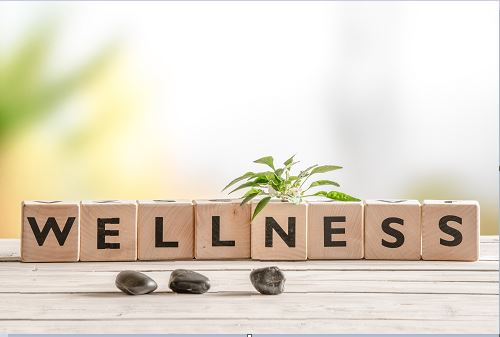
@ShahidNShah


Sleep health is under threat in today’s fast-paced world. While the basics of rest remain timeless, sleep clinics are rapidly evolving—combining ancient therapies like aromatherapy with the latest digital tools for precision sleep monitoring. Instead of focusing only on generic tips, progressive clinics now offer patients data-driven, personalized plans that incorporate essential oils for sleep and advanced technology—signaling the future of holistic sleep care.
Aromatherapy, often delivered via essential oils, has been used for centuries to promote relaxation and improve sleep quality. Lavender, chamomile, clary sage, frankincense, and ylang ylang are among the most widely recognized for their calming and sedative properties.
Why Sleep Clinics Turn to Essential Oils
Research confirms that lavender and chamomile can be particularly effective for relieving mild sleep disturbances—making them a practical fit in sleep clinics hoping to enhance patient comfort during assessment and therapy.
Rise of Digital Sleep Monitoring and Smart Sleep Tech
Modern sleep clinics don’t just rely on patient-reported symptoms—they leverage data for more complete understanding and tailored care. Digital sleep monitoring technologies are revolutionizing diagnosis and follow-up in several key ways:
Key Tech Innovations:
According to experts at the Sleep Foundation and LiveScience, digital sleep monitoring provides objective feedback, allowing providers to track progress and adjust treatment far more precisely than ever before.
Merging Aromatherapy with Digital Monitoring: A New Paradigm
Doctors and patients alike increasingly want holistic approaches that are safe, supported by evidence, and tailored to individual lifestyles. The new wave of sleep clinics is meeting this need by integrating essential oils with digital tracking for synergistic results.
Aromatherapy is increasingly integrated with digital sleep monitoring in clinics for its evidence-backed benefits and ability to complement medical treatment—not replace it. When combined with advanced sleep tech, the effects of specific essential oils can be tracked and personalized for better patient outcomes.
Combining the soothing psychological and physiological effects of essential oils with digital sleep monitoring empowers sleep clinics to individualize treatment, objectively measure aromatherapy’s benefits, and continuously refine protocols for the best patient outcomes.
To further personalize client results and empower users, sleep clinics now combine aromatherapy and digital sleep monitoring with practical health tips. For example, patients receive recommendations like maintaining a regular sleep schedule, creating a calming bedroom environment, and using essential oils to support relaxation routines. By leveraging digital sleep trackers, clinics help clients spot habits that affect rest, adjust bedtime behaviors, and celebrate progress—ensuring health tips are integrated with every step of their sleep improvement plan.
Success Stories: When Tradition Meets Technology
Real-Time Optimization:
AI-powered devices will increasingly give live recommendations, suggesting when to start diffusing your favorite oil based on stress patterns, recent sleep data, or even genetic susceptibility to insomnia.
All-In-One Smart Beds:
Imagine a future where your mattress tracks sleep, adapts its firmness, releases targeted scents at the optimal time, and dims the room—offering a seamless biofeedback loop that merges the wisdom of aromatherapy with cutting-edge technology.
Accessible, Inclusive Care:
By offering natural adjuncts like essential oils, clinics support those who prefer to avoid or supplement pharmacological interventions. Digital tools ensure care is objective, measurable, and accessible—even for remote or underserved populations.
The integration of aromatherapy and digital sleep monitoring represents a leap forward for sleep clinics. By combining the holistic, calming power of essential oils with the actionable insights from advanced technology, clinics can offer more comprehensive, science-backed, and personalized care than ever before. The result? Healthier sleep, more satisfied patients, and a future where sleep clinics truly support the full spectrum of sleep wellness.

In today’s fast-paced digital world, the landscape of healthcare is evolving at an unprecedented rate. You might be wondering how future healthcare professionals can stay ahead in this high-tech …
Posted Aug 23, 2025 Patient Experience Healthcare
Connecting innovation decision makers to authoritative information, institutions, people and insights.
Medigy accurately delivers healthcare and technology information, news and insight from around the world.
Medigy surfaces the world's best crowdsourced health tech offerings with social interactions and peer reviews.
© 2026 Netspective Foundation, Inc. All Rights Reserved.
Built on Feb 17, 2026 at 3:24pm